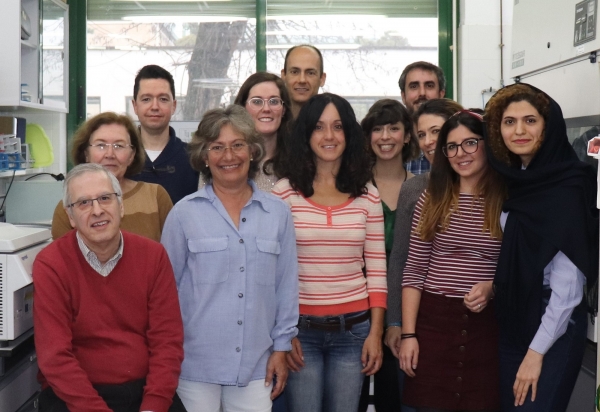"Today's algae are destined be the salvation of many of tomorrow's applications". This is how the researcher Emilio Fernández sums up the potential that these living beings have as subjects of study to tackle some of the scientific challenges on the horizon. This professor of Biochemistry and Molecular Biology heads up, at the University of Córdoba, an international project to promote research and technological development in the area of microalgae biotechnology and its application to different areas of Health, Cosmetics and Aquaculture.
This is a cross-border consortium between Andalusia and the Portuguese Algarve in which almost a dozen universities, companies and laboratories participate, with the aim of increasing knowledge about these organisms. The utility of microalgae encompasses applications as varied as producing biofuel, new antibiotics and fertilisers, reducing carbon dioxide emissions, and cleaning wastewater.
The project, dubbed 'AlgaRed +', in which the “Algae Nitrate Molecular Biology Assimilation Group” at the University of Córdoba participates, has made major progress since it began its efforts, especially regarding knowledge of certain key metabolic routes that provide valuable information about how certain chemical reactions work. In this regard the work has provided important clues as to how algae assimilate nitrogen.
Research has found that certain algae are capable of assimilating amino acids if they have an enzyme called "amino acid oxidase". They have also discovered that certain microalgae that lack this enzyme are capable of assimilating some amino acids associated with bacteria that, in exchange for supplying them with reduced carbon compounds, photosynthates, provide reduced nitrogen, such as ammonium.
This consortium allows the two organisms to survive in an environment in which they could not survive on their own, and the study of this "marriage of convenience" could have important applications in the Agriculture industry. For example, if it is possible to understand, in depth, how plants use soil nitrogen, more environmentally efficient and sustainable fertilisers could be used.
The project has also taken an important step to understand exactly how the metabolism of nitric oxide works, a molecule present in the physiological regulation of all living beings, and which is used by certain plants to overcome stressful situations, such as infection and exposure to adverse temperatures. "The algae have allowed us to verify that this metabolite is produced by enzymes existing in all photosynthetic systems; the nitrate reductase works in coordination with the Nitric Oxide-Forming Nitrite Reductase (NOFNiR). In addition, we have verified that another additional enzyme plays an important role in the process and, although it has not been identified yet, we know that it exists, functionally," explains the study's director at the UCO.
Another important objective of the group is to study the relationship between algae and antimicrobial peptides, proteins capable of producing holes in bacteria, inserting themselves into their membranes and destroying them without damaging the rest of cells. These peptides, due to their nature, could be candidates to fight against certain bacteria that have generated resistance to standard antibiotics.
Finally, the project also examines the establishment of an algae collection that makes it possible to identify new species and develop products for aquaculture. Professor Emilio Fernandez emphasises that "the exchange of information and data between consortium partners" is vital to fill in knowledge gaps that exist regarding algae, organisms that have emerged as vital allies of Science, and that are, apparently, destined to play key roles in scientific breakthroughs.


